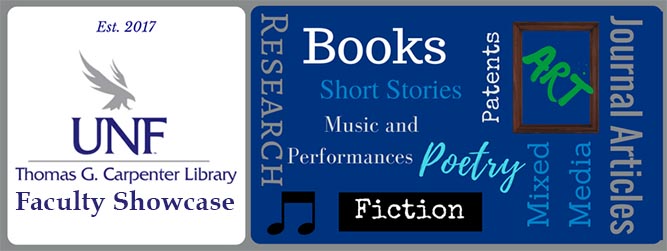
College
College of Education and Human Services
Department
Exceptional, Deaf, and Interpreter Education
Rank
Assistant Professor
Universal Design for Learning Practice Among Faculty Pre and Post COVID-19
Type of Work
Journal Article
Publication Information
Kilpatrick, J. R., Ehrlich, S, & Bartlett, M. (2021). Learning from COVID-19: Universal Design for Learning implementation prior to and during a pandemic. Journal of Applied Instructional Design. 10(1). https://dx.doi.org/10.51869
Description of Work
This study examined whether higher education faculty were knowingly and/or unknowingly applying UDL principles prior to and during the COVID-19 rapid online teaching and learning (ROTL) transition. Researchers collected data through a survey that was disseminated nationwide and completed by higher education faculty (n = 38). Findings included a shift in instruction modality: fifty percent of synchronous in person instruction moved to asynchronous online instruction or optional synchronous remote instruction. Additionally, there was an unsurprising, considerable increase in the use of technology to support student engagement with course content. Researchers identified themes in the barriers (e.g., time, resources, training) to applying UDL principles both prior to and during the COVID-19 ROTL transition. Suggestions for overcoming those barriers are also included.
Rights and Access Note
CC BY: This work is released under a CC BY license, which means that you are free to do with it as you please as long as you properly attribute it.
Creative Commons License

This work is licensed under a Creative Commons Attribution 4.0 International License.
Universal Design for Learning Practice Among Faculty Pre and Post COVID-19
This study examined whether higher education faculty were knowingly and/or unknowingly applying UDL principles prior to and during the COVID-19 rapid online teaching and learning (ROTL) transition. Researchers collected data through a survey that was disseminated nationwide and completed by higher education faculty (n = 38). Findings included a shift in instruction modality: fifty percent of synchronous in person instruction moved to asynchronous online instruction or optional synchronous remote instruction. Additionally, there was an unsurprising, considerable increase in the use of technology to support student engagement with course content. Researchers identified themes in the barriers (e.g., time, resources, training) to applying UDL principles both prior to and during the COVID-19 ROTL transition. Suggestions for overcoming those barriers are also included.


Biographical Statement
Jennifer Renée Kilpatrick is an Assistant Professor of Deaf Education at University of North Florida. She holds Masters degrees in Deaf Education and Reading Education, as well as a PhD in Literacy Studies. In her research, she uses her own experiences as a former teacher of the deaf to engage in instructional coaching that centers on developing accessible literacy instruction. She has published on written language development and assessment, Strategic and Interactive Writing Instruction (SIWI), deaf education teacher preparation, and Universal Design for Learning (UDL). As an investigator on the research team that developed, and is now examining the efficacy of, Strategic and Interactive Writing Instruction, she has collaborated with teachers and speech language pathologists in a variety of instructional settings in 15 states across the United States. She has also provided professional development in four schools for the deaf in various regions of Haiti.
Suzanne Ehrlich is an Associate Professor in the Educational Technology, Training and Development program at the University of North Florida, is a certified ASL/English interpreter and co-founder and director of the UNITE Design Lab. She completed her doctorate in instructional design and technology at the University of Cincinnati in 2006 and has presented nationally/internationally on the topics of implementing the Universal Design for Learning (UDL) framework for improved learner engagement, learning design, and leveraging technology for access. Her recent work focuses on the UDL mindset in post-secondary settings and the workplace. Her publications include her co-PI pilot study on Increasing Learner Engagement in Online Learning through the Use of Interactive Feedback, a co-authored article How a UDL Mindset Can Support Learning in the Workplace, and The Use of iPads to Bridge Education for Post-secondary Deaf Students. Her service focused on faculty enhancement, learning spaces advisory committee, and statewide groups for workplace learning like the Association of Training and Development (ATD) of Northeast Florida and program chair for AERA’s Workplace SIG.
Michelle Bartlett, Ph.D., is a faculty scholar at the Belk Center for Community College Leadership and Research at North Carolina State University. Michelle received her Ph.D. in Higher Education Leadership with a cognate in Statistics at Clemson University. She currently is Editor for the Career & Technical Education Research Journal. Michelle has extensive experience designing and facilitating training for post-secondary education, business, and government programs. Michelle creates programs in Executive Leadership, Change, Conflict Management, Empowering Middle Management, Improving Training Effectiveness, and Instructional Design. She serves as VP for Membership on the Research Triangle Area Chapter Board.